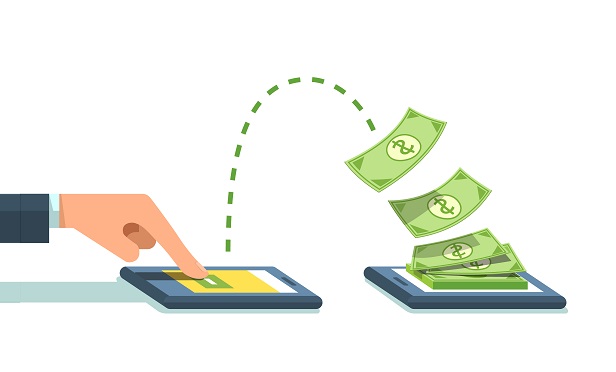 Advance-pay apps like Even can help people with short-term financial stresses—and have the added benefit of helping employees better manage their money. (Photo: Shutterstock)
Advance-pay apps like Even can help people with short-term financial stresses—and have the added benefit of helping employees better manage their money. (Photo: Shutterstock)
When the first customer of your start-up company is Walmart, you know you're onto something.
Jon Schlossberg, co-founder and CEO of advance-pay company Even, says the idea of challenging the payday loan industry was driven by demand for a better model—and not just from the lower-income neighborhoods that payday loan lenders are associated with.
“You have software engineers in Silicon Valley living paycheck to paycheck,” he says. “Half of America is living paycheck to paycheck. We realized we needed to help people escape that cycle.”
Related: 4 FAQs about daily pay programs
The Even app offers employees an alternative to payday loans, which are infamous for high interest rates. The new model is basically a pay advance, with safeguards built in to keep people from taking out too much money. The Even app took three years to build and attracted $52 million in venture capital funding, according to Forbes.
Walmart made the Even app part of its benefit package in 2017. According to the Even website, the company was looking for a benefit that helps people with short-term financial stresses—and it has the added benefit of helping employees better manage their money and find a better degree of financial security. Walmart officials says they were surprised by the enthusiasm workers had for app.
Subscribers (who pay up to $8 month for the service), get help from the app with budgeting and saving, and have the option of pulling out some of their earnings before their regular paycheck is issued. For employees with a two-week pay cycle, a sudden expense or bill might catch them without the means to pay; Even would let them take out up to half of that cycle's wages in advance of payday.
The payday loan problem
Schlossberg says the issue of living paycheck to paycheck has been a growing problem for workers in the country. “Income has been flat for the bottom 90 percent of us since 1990, but over that time frame everything else gotten more expensive,” he noted. Payday lenders have stepped in to fill the gap—it's estimated that Americans take out $50 billion in payday loans each year.
“What it means to be living paycheck to paycheck is that you don't have savings, and that prevents you from creating opportunities for yourself and your kids,” he says. “What we realized in our research is that this problem has many parts, and you have to make a product for each part of the problem.” He added that's why his company includes features such as a budgeting tool and a savings account option with the app.
The payday loan model was designed to trap people in debt, Schlossberg says. “The number one reason it's bad is not the interest rate,” he says. “It's the way it works: you have to pay it back fully. A lot of times the loan is so much money you can't possibly pay it back and have enough money to live on. So they roll the loan over.” In the end, people can end up owing thousands of dollars for a relatively small loan.
Schlossberg notes that unexpected bills can also result in overdraft fees from a bank, which can trap consumers in a similar vicious cycle of trying to catch up. The Even app, he notes, works to prevent such problems with its budgeting and saving features, and limits the amount of cash available to withdraw.
The Walmart experience
Even is not the only advance-pay on the market. DailyPay, and FlexWage are two companies with slightly different models. Both rely on transaction fees, rather than a subscription model. But Even has attracted the most attention, in part because of its partnership with Walmart.
Walmart was the first company to offer the app to employees, and the response has been strong: 300,000 Walmart employees subscribed to the app in 2018. “People say it's life-changing,” Schlossberg says. “It wasn't really even marketed, it grew by word of mouth. That growth speaks to the need: we all have these problems.”
Schlossberg notes that Walmart recognized that more financial security would mean that employees would be happier and more productive in their jobs—and would be less likely to leave.
“In a lot of businesses, recruitment and retention is a top-of-mind issue, and this is a way to attract people in a way that typical compensation methods don't address,” Schlossberg says.
More ways to help employees with their financial wellness:
© 2025 ALM Global, LLC, All Rights Reserved. Request academic re-use from www.copyright.com. All other uses, submit a request to [email protected]. For more information visit Asset & Logo Licensing.







